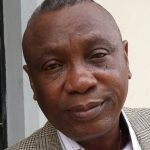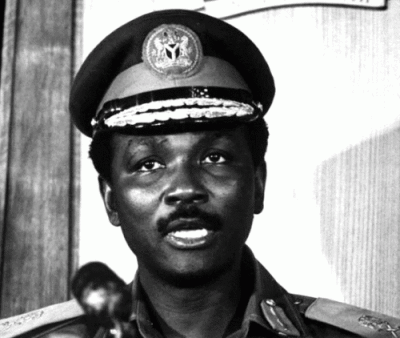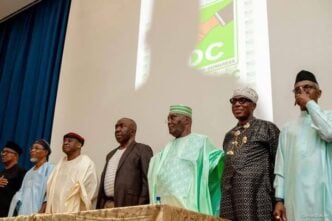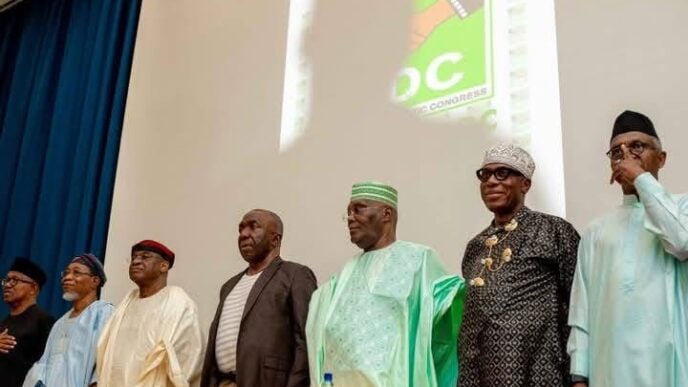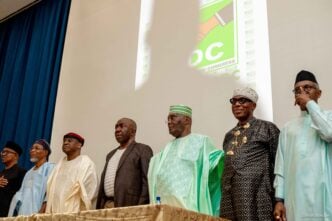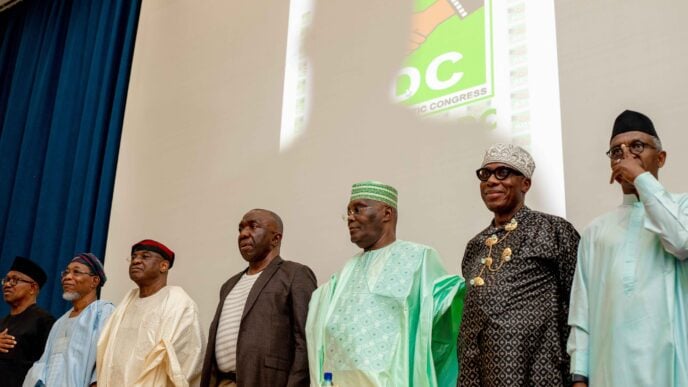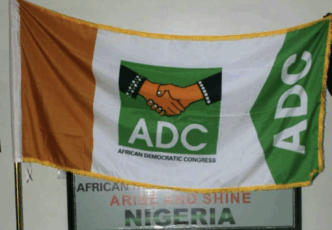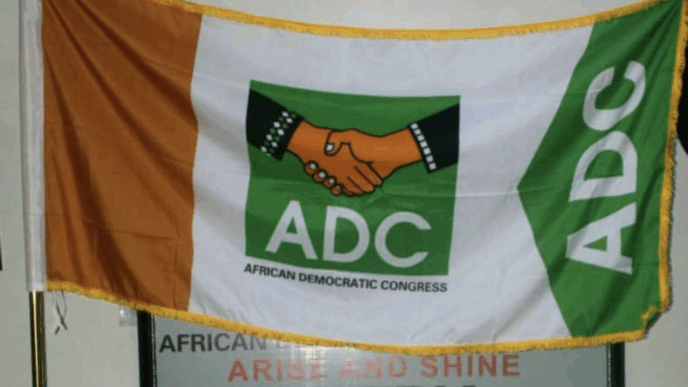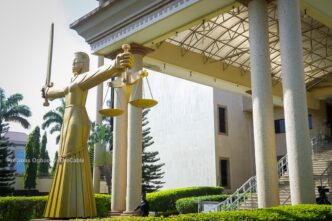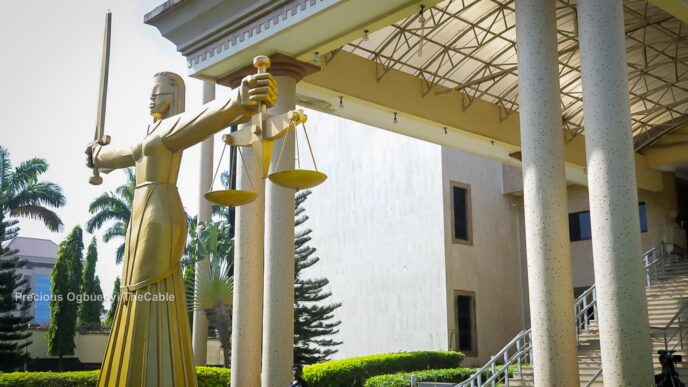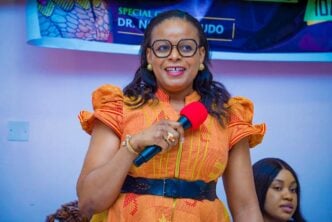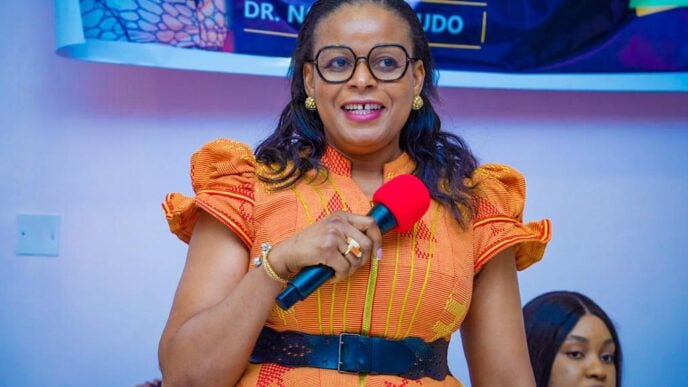Tuesday, July 29,2025 will be the 50th anniversary of the overthrow of General Yakubu Gowon GCFR. He was overthrown in a bloodless military coup on the same Tuesday, July 29, 1975. Most of us remember where we were at 6.00 a.m. on Tuesday, July 29, 1975, when the Commander of the Brigade of Guards made the following announcement.
“Fellow countrymen and women, I, Colonel Joseph Nanven Garba, in consultation with my colleagues, do hereby declare that in view of what has been happening in our country in the past few months, the Nigerian Armed Forces decided to effect a change of the leadership of the Federal Military Government.
As from now, General Yakubu Gowon ceases to be head of the Federal Military Government and Commander-in-Chief of the Armed Forces of Nigeria. The general public is advised to be calm and to go about their lawful duties.
However, in view of the traffic situation in Lagos area, all workers other than those on essential services like NEPA, Medical Services, Water Works, NPA, the P & T, all workers and all Tanker Drivers will observe today, 29th of July, 1975, as a work free day.
Advertisement
A dusk to dawn curfew is hereby imposed until further notice. Nigeria Airways operations are suspended and all Airports and Borders are closed till further notice.
Fellow countrymen, this has been a bloodless operation and we do not want anyone to lose his or her life. You are therefore warned in your own interest to be law abiding. Anyone caught disturbing the public order will be summarily dealt with.
We appeal to everyone to co-operate in the task ahead. Further announcements will be made in due course. Long live the Federal Republic of Nigeria.”
On a personal note, on that day I rushed to see my friend, late Richard Tokunbo Amayo of THE NIGERIAN OBSERVER, who was living nearby at Isale Ososami, Oke-Ado, Ibadan, to discuss what Colonel Garba has just announced on the radio. I was then the Western state Chief Correspondent for the Kwara Government state owned newspaper, THE NIGERIAN HERALD.
Advertisement
Colonel Joseph Garba (17 July 1943 – 1 June 2002) was from Langtang in the then Benue-Plateau state which was near Gowon’s aboriginal village in Angas. As a lieutenant in November 1964, Joe Garba was originally handpicked (by then Lt. Col. Yakubu Gowon) from the 4th battalion in Ibadan, to the Federal Guards Company where he became the second-in-command to Major Donatus Okafor. He remained there until July 1965 when he was posted to 2 Brigade HQ as GSO III under Major Emmanuel Ifeajuna who served as Brigade Major to Brigadier Zakari
Maimalari from the present Yobe state.
General Yakubu Gowon (Rtd.) (90) GCFR ruled Nigeria uninterruptedly for nine years.
On October 1, 1970, General Gowon announced a six-year nine-point plan, which he said, must be accomplished “before the government of the country can be handed over with a full sense of responsibility”. The points were as follows: reorganization of the armed forces; implementation of a national economic development plan, including reconstruction of war damaged areas, eradication of corruption; establishment of more states; adoption of a new constitution; introduction of a formula for allocating revenue; completion of a national census; organization of national political parties; and elections at federal and state levels.
Advertisement
However, in another nationwide broadcast on October 1, 1974, General Gowon announced that the 1976 date was ‘unrealistic,’. He failed to announce a new date. He was overthrown because he broke his pledge to the people. While declaring a state of emergency, on May 27, 1967, during which he created twelve states, General Gowon declared “My duty is to all citizens. I propose to treat all sections of the country with equality. The main obstacle to future stability in this country is the present structural imbalance in the Nigerian Federation. Even Decree No. 8 or Confederation or Loose Association will never survive if any one section of the country is in a position to hold the others to ransom.”
General Gowon then appointed twelve governors of which only two of them are still alive. Those alive are Brigadier General Christpher Oluwole Rotimi (Rtd.) of defunct Western state (90) and Lt Commander Alfred Papapreye Diete-Spiff (Rtd.) of defunct Rivers state (82), the Amayanabo (King) of Twon-Brass, Bayelsa State.
The other governors he appointed from time to time and who have answered the final call were Mr. Joseph Dechi Gomwalk (13 April 1935– 15 May 1976) (Benue/Plateau), Brigadier Musa Uman (Rtd.) (1940-1991), North East, Brigadier Abba Kyari (Rtd.) (17 November 1938 – 25 November 2018), North-Central, Brigadier Femi David Lasisi Bamigboye (7 December, 1940-21 September, 2018), Kwara state, Brigadier Jacob Udokaha Esuene (1936-1993), South Eastern state, Anthony Ukpabi Asika (28 June 1936-14 September 2004), administrator, East Central state, Brigadier Mobolaji Olufunso Johnson (Rtd.) (8 February, 1936- October 30, 2019), Lagos state, Major General Robert Adeyinka Adebayo (9 March 1928 – 8 March 2017) Western state, Alhaji Usman Farouk (1932-18 December 2020), North West, Lt. Colonel David Akpode Ejoor (10 January 1932 – 10 February 2019) and Colonel Samuel Osaigbovo Ogbemudia (17 September 1932 – 9 March 2017), Mid-West State and Alhaji Audu Bako (1924-1980), Police, Kano state.
The interesting thing is that General Yakubu Gowon survived them all including most of his Ministers, who were then classified as Federal Commissioners.
Advertisement
Those of the Federal Commissioners still alive are Brigadier Olusegun Obasanjo GCFR (Works and Housing) (88), Colonel Ahmadu Alli (Education) (89) and Alhaji Lateef Olufemi Okunnu (Works and Housing) (92).
Those of them who are now deceased were Major-General Eyo Okon Ekpo( Agriculture and Natural Resources), Professor Adebayo Adedeji (Economic Development and Reconstruction), Dr Okoi Arikpo (External Affairs), Alhaji Aliyu Usman Shehu Shagari (Finance) GCFR, Brigadier Emmanuel Olumuyiwa Abisoye (Health), Colonel Mohammed Inua Wushishi (Industries), Chief Edwin Kiagbado Clark(Information), Mr Adamu Suleman(Internal Affairs), Brigadier Henry Edmund Olufemi Adefope (Labour), Mr Gabriel Chukwuemeka Akwaeze(Trade) and Captain Olufemi Olumide (Transport).
Advertisement
Others were Colonel Dan Suleiman(Special Duties), Chief Anthony Enahoro (Special Duties), Alhaji Shettima Ali Monguno (Mines and Power), Major General Hassan Usman Katsina (Labour), Mallam Aminu Kano (Health), Chief Joseph Sarwan Tarka (Communications), Brigadier Murtala Mohammed GCFR (Communications), Chief Abudu Yesufu Eke (Education), Chief Obafemi Awolowo(Finance) GCFR, Dr. Taslim Elias (Justice), Mr. B.O. Mafeni (Agriculture and Rural Development), Chief Wenike Opurum Briggs (Education and later Trade), Colonel I.D. Bisala (Defence) and Mr. Russel Aliyu Barau Dikko (Mines and Power).
During General Gowon’s tenure, for the first ten months there was no FEDERAL CABINET. Permanent Secretaries dealt directly with General Gowon. That was during the era of Super Permanent Secretaries. Except for Chief Phillip Chikwuedo Asiodu (91) almost all of them have passed on.
Advertisement
Under General Gowon, there was the Central Planning Office, under the Ministry of National Planning and Reconstruction. That office was the engine room of the second and third development plans.
Other top government officials who worked with General Gowon in that Planning office were Owelle Gilbert Prince Obiajulu Chikelu (94), Chief Samuel Oluyemisi Falae (87), Chief John Odigie Oyegun (86), Chief John Dikenwiwe Edozien (born April 20, 1943), Boye Ilori, Wole Okunfulure, Gbenga Tiamiyu, Chief Ayo, Dr. Chukwuemeka Ezeife (20 November 1937 – 14 December 2023) and others.
Advertisement
There were other Permanent Secretaries who worked directly with him including the then Secretary to the Government, Chief H. A. Ejueyitchie, an Itsekiri from the then Mid-West, Chief Ufot
Ekaette (his private secretary for 8 years), Alhaji Yusuf Gubir, Chief Allison Ayida, Chief Charles Olatunde Lawson, Ime James Ebong, Alhaji Musa Daggash, Abdul Aziz Atta, Chief Stanley Olabode Wey, S.S. Waniko, Chief Eniolorunda Ojumu, Mr. B. Popo, Imafidon Akade, Prince Solomon Akenzua, M. A. Tokunboh, Chief B.M. Okagbue, Chief Edwin Ogbu, Chief Victor Adegoroye, E. E. Nsefik, Alhaji Umaru Sanda Ndayako, who later became the 12th Etsu Nupe from 1978-2003 and others. General Gowon also worked with the members of the Federal Public Service Commission in which Alhaji Sule Katagum was the chairman. Other members were Dr. Samuel Manuwa, Alhaji Yusuf Jega and Dr. L.O. Wochia.
During General Gowon’s tenure, Nigeria had the finest civil servants that any country could boast of. At that time, they were the envy of Africa and the Commonwealth of nations.
Mention must be made of Chief Jerome Oputa Udoji, Chief Augustus Oladipo Adebayo, Chief Peter Odumosu, Chief Simeon Olaosebikan Adebo, Chief Christopher Sunday Olatunde Akande, Chief Samuel Oyewole Asabia, Chief Sam Epelle, Mr. M.I. Alege, Mr. L. A. Nsefik, Mr. Benjamin Akinnusi Osunsade, Dr. Christopher Kolade, Chief N.U. Akpan, Chief D.P. Lawani, Alhaji Ali Akilu, Chief (Mrs) Folayegbe Akintunde-Ighodalo (17 December 1923 – 14 February 2005), the first woman Permanent Secretary and lots of them.
There were other top officials like Mr. C. Olumese, Mr. Gboyin Alabi, Mr. Olufemi Akande, Mr. Nyalander, Chief Olu Awotesu (Registrar of Ships), Mr. Felix Bankole Cardoso (Accountant-General at that time), father of the present Governor of Central Bank of Nigeria (CBN), Chief (Mrs.) Ebun Oyagbola (Accountant), Mr. Adeyinka Samuel George Nelson (government’s Printer) and others.
On January 2, 1975, General Yakubu Gowon appointed the following as Permanent Secretaries. A.S.N.Egbo (Cabinet Secretariat), Yaya Abubakar (Political), Dr. J.O. Adekunle (Economic), Mrs. F.Y. Emmanuel (Public Service), M. Saidu Gwarzo (Police Affairs), B.S. Oloruntoba (Agriculture and Rural Development), F.M.C. Obi (Civil Aviation), I. Akade (Co-Operatives and Supply), S.A. Musa (Health), Festus I. Adesanoye (Housing, Urban Development and Environment), A. Fika (Internal Affairs), J. Taggert (Social Development, Youth and Sports), J. A. Adeyeye (Trade), M.E.P. Udebiuwa ( Works) and J.D. Ogundele (Justice).
Others were S. O. Williams (Communications), Sunday B. Awoniyi (Defence), I.J. Ebong (Economic Development), A. Lima Ciroma (Education), G. A. E. Longe (Establishments), J.T.F. Iyalla (External
Affairs), I.M. Damcida, Ahmed Joda (Industries), A. Tatari-Ali (Information), S.O. Koku (Labour), G.A. Ige (Mines and Power), P.C. Asiodu (Petroleum and Energy), Y. Gobir (Transport) and Dr. Bukar Shaib (Water Resources).
In overthrowing General Yakubu Gowon, on the evening of July 30th, 1975, Brigadier General Murtala Ramat Mohammed (8 November 1938 – 13 February 1976) declared “Fellow Nigerians the events of the first few years have indicated that despite our great human and material resources, the government have not been able to fulfill the legitimate expectations of our people. Nigeria has been left to drift. This situation, if not arrested, would inevitably have resulted in chaos and even bloodshed.
“In the endeavour to build a strong, united and virile nation, Nigerians have shed much blood.
The thought of further bloodshed, for whatever reason must, I am sure, be revolting to our people. The Armed Forces, having examined the situation, came to the conclusion that certain changes were inevitable. After the civil war, the affairs of state hitherto a collective responsibility, became characterised by a lack of consultation, indecision, indiscipline and even neglect.”
“Indeed, the public at large became disillusioned and disappointed by these developments. This trend was clearly incompatible with the philosophy and image of a corrective regime. Unknown to the general public, the feeling of disillusionment was also evident among members of the armed forces whose administration was neglected but who, out of sheer loyalty to the Nation, and in the hope that there would be a change, continued to suffer in silence.”
“Things got to a stage where the head of administration became virtually inaccessible even to official advisers; and when advice was tendered, it was often ignored. Responsible opinion, including advice by eminent Nigerians, traditional rulers, intellectuals, et cetera, was similarly discarded. The leadership, either by design or default, had become too insensitive to the true feelings and yearnings of the people. The nation was thus plunged inexorably into chaos.”
It was obvious that matters could not, and should not, be allowed in this manner, and in order to give the nation a new lease of life, and sense of direction, the following decisions were taken:
1. The removal of General Yakubu Gowon as Head of the Federal Military Government and Commander in Chief of the Armed Forces.
2. The retirement of General Yakubu Gowon from the Armed Forces in his present rank of General with full benefits, in recognition of his past services to the nation.
3. General Gowon will be free to return to the country as soon as conditions permit; he will be free to pursue any legitimate undertakings of his choice in any part of the country. His personal safety and freedom and those of his family will be guaranteed.”
General Yakubu Gowon GCFR was overthrown in Uganda while attending the meeting of the Organisation of African Unity (OAU).
Mr. Nowa Omoigui, a renowned journalist and an authority on Nigeria issues, described the plight of General Gowon after the overthrow. He declared: “Nevertheless, General Gowon, far away in Kampala, had friends. Many offers of residence came to him in Kampala from various African countries.
General Gowon notified the new regime in Lagos that he would leave Kampala for Lome in Togo. Since he was financially broke, teary-eyed members of the Nigerian delegation along with staffers at the Nigerian High Commission in Kampala donated 3000 pounds sterling to enable him begin a new life. He was flown to Lome – via Garoua in Cameroon – aboard President Idi Amin’s executive jet.
Part of the flight passed through Nigerian airspace and Gowon took the opportunity to transmit a radio message reaffirming loyalty to and support for Brigadier Muhammed’s new regime. Although offered permanent domicile in Togo he chose to join his family in the United Kingdom. He received an additional 10,000 pounds sterling donation from General Eyadema. Following a telephone call to Brigadier Muhammed, during which he made requests for elementary federal assistance, he left for London.
When General Gowon got to London, he was offered official accommodation by the Nigerian government which he, however, turned down for a variety of reasons. After some weeks at the Portman Hotel, he moved into the house of an old friend – Mr. Emmanuel Otti – at 472 Finchley Road, London. The delay was to enable the house to be redecorated by Mr. and Mrs. Otti and Brigadier Sam Ogbemudia (who had been in the UK when the coup took place in Nigeria). Other friends came to the assistance of the family. It was not until September 1975 that he began to get his pension and gratuities as a retired Four-Star General.
In the nine years he had been Nigeria’s ruler he had not built himself a single house, inside or outside the country, nor did he expropriate one kobo of government money. Unlike some of those who served under him, his TOTAL savings throughout his service years as well as his years as Nigeria’s leader was N75,000 – all of which was inside Nigeria. In time to come this would stand in stark contrast to the conduct of and personal fortunes of most of those who conspired to remove him from office – or benefited from it.
Once settled in with his family, the General, who was offered several Masters Degree programs, signed up for undergraduate studies in Political Science at Warwick University. Newspapers in Nigeria later carried news items and photographs depicting the former Nigerian leader carrying trays in a student cafeteria in the UK. The Muhammed regime was embarrassed and therefore dispatched Brigadier TY Danjuma (who, took Kano born Col. Wali along) to ask Gowon adopt a supposedly more dignified stance. Gowon rejected the overture and reassured his “embarrassed sympathizers” that he was comfortable with his situation. (Conceivably nothing could have been more embarrassing than to be overthrown while attending an OAU summit).
He made friends among the Nigerian students at Warwick, including a family friend of mine, Desmond Guobadia, now a legal practitioner in Lagos. Meanwhile his spouse, the former First Lady, Mrs. Victoria Gowon (who was a nurse) registered as a catering student at a University College in London.”
After his overthrow, there was a commission of enquiry to probe General Gowon. At the end of it all, he was never found guilty of corruption. Also, two of his governors, Brigadier Mobolaji Johnson and Brigadier Oluwole Rotimi were cleared of corruption charges.
In foreign affairs, he excelled.
The Economic Community of West African States (ECOWAS) is one of the achievements of the leaders of West African in the seventies. It has just celebrated its 50th anniversary. Unfortunately, today, the ECOWAS is in comatose, whereas it was designed to strengthen cooperation and unity among the West African sub-region. It was formed on May 28th, 1975.
General Gowon was one of the founders of that body. The President of Republic of Dahomey, Lt-Colonel Mathieu Kerekou, the President of the Republic of Gambia, Sir, Dawuda Jawara, the President of the newly independent Republic of Guinea- Bissau, Mr. Luiz Cabral, the President of Ivory Coast, Mr. Felix Houphouet Boigny, the President of Liberia, Dr. William R. Tolbert Jr. and the President of the Islamic Republic of Mauritania, Mr. Moktar Ould Daddah personally led their countries’ delegations to the historic summit and signed the treaty.
Other personal signatories were the Head of State of the Republic of Niger, Lt-Colonel Seyin Kountche, the President of the Republic of Sierra Leone, Dr. Siaka Stevens, the President of the Republic of Upper Volta, General Elhaj-Abubachar Sangoule Lamizana, the President of Togo, General Gnassingbe Eyadema and the Head of State of the Federal Republic of Nigeria, General Yakubu Gowon- the last two pioneers of the final successful effort at forming ECOWAS.
Plenipotentiaries at the summit were Major Amadou Bala Diarra, Vice-President, representing President Moussa Traore of the Republic of Mali, Dr. Lansana Beavogui, Prime Minister, representing President Ahmed Sekou Toure of the Republic of Guinea, Mr. Abdou Diof, Prime Minister, representing President Leopold Sedar Senghor of the Republic of Senegal and Lt-Colonel R.J.A. Felli, Commissioner for Economic Planning, representing the Head of State of the Republic of Ghana, Colonel Ignatius Kutu Acheampong.
It is no exaggeration that General Yakubu Gowon was the brain behind the establishment of the following companies.
These companies with their locations and the percentage of Federal Government shareholding are as follows: Anambra Motor MFG. Co. Ltd.-Anambra-35 per cent; Nkalagu Cement Co. Ltd. (Expansion)-Anambra-10 per cent; Steyr Nigeria Ltd.- Bauchi-35 per cent, Ashaka Cement Company Ltd.-Bauchi-30 per cent; New Nigeria Salt Company Ltd-Bendel-100 per cent; Delta Steel Company Ltd.-Bendel-100 per cent; Nigerian National Shrimp Co Ltd.-Bendel-51 per cent; Nigeria National Fish Co Ltd-Bendel-66 per cent; Benue Cement Company Ltd.- Benue-39 per cent; Calabar Cement Company Ltd.- Cross River-40 per cent; Nigeria Newsprint Mfg. Co. Ltd.-Cross River-80 per cent; Serwood Industries Ltd.- Cross River-20 per cent; Opobo Boa Yards Ltd.-Cross River-43.75 per cent; Savana Sugar Company Ltd.-Gongola-72 per cent; Aba Textile Mills Ltd- Imo-70 per cent and Electricity Meters Company Ltd.-Kaduna-80 per cent.
Others were Peugeot Automobile Nigeria Ltd.-Kaduna-35 per cent; Batagarawa Steel Rolling Mill-Kaduna-100 per cent; Super Phosphate Fertilser Co.-Kaduna-100 per cent; North Brewery Ltd.-Kano-50 per cent; National Truces Manufacturing Co. Ltd.-Kano-35 per cent; Nigeria Sugar Company Ltd.-Kwara-19.7 per cent; Ajaokuta Steel. Ltd.-Kwara-100 per cent; Nigeria Paper Mills Ltd-Kwara-100 per cent: Lafiagi Sugar Company Ltd.-Kwara-90 per cent: Nigeria Yeast and Alcohol Manufacturing Co. Ltd.-Kwara-51 per cent; Flour Mills of Nigeria-Lagos-12 per cent; West Africa Distillers Ltd.-Lagos-100 per cent; Volkswagen of Nigeria Ltd-Lagos-35 per cent; NICHEMTEX Industries Ltd.-Lagos-9.23 per cent, Sunti Sugar Company Ltd.-Niger-90 per cent; West African Portland Cement Co. Ltd.-Ogun-20 per cent; National Salt Company Ltd.-Ogun-100 per cent; Nigeria National Paper Manufacturing Co. Ltd.-Ogun-70 per cent; Nigeria Transformers Ltd.-Ogun-65 per cent; Nigeria-Romania Wood Industries Ltd.-Ondo-25 per cent; Leyland Nigeria Ltd.-Oyo-35 per cent; Oshogbo Steel Rolling Mill-Oyo-100 per cent; Jos Steel Rolling Mill-Plateau-100 per cent and Sokoto Cement Company Ltd-Sokoto-31 per cent.
If I may ask, how many of these companies or industries are still operating today?
In the domestic front, bodies like the National Bank for Commerce and Industry established on April 2, 1973, the National Insurance Cooperation of Nigeria established on July 1, 1969, the National Oil Corporation, now NNPC established on April 1 1971, the Nigerian Standard Organisation established on December 1, 1971, the Industrial Research Council of Nigeria established in June 1971, the Nigerians Enterprises Promotion Board established February 22, 1972 and the Nigerian National Supply Limited established in January 1972. These are some of the initiatives established by General Yakubu Gowon.
Mention must be made of the indigenisation decree promulgated in December 1972 by General Yakubu Gowon. By December 1974, the Capital issues Commission had fixed prices for the ordinary shares of 24 companies. Ordinary shares totaling 54,051, 000 were transferred to Nigerians—13 companies in the manufacturing sector transferred 18,8331,000 ordinary shares: eight commercial companies transferred 31,987,000 while three services companies transferred 3,233,000 ordinary shares.
However, the National Youth Service Corps Scheme (NYSC) was established by General Gowon on May 22, 1973 under Decree Number 24. The concept of the National Youth Service Corps was first broached in the Second 4-Year Development Plan, in which it was announced that the Federal Military Government planned to establish a Youth corps organization during the period covered by the plan.
General Yakubu Gowon, subsequently announced in the course of his broadcast to the nation on the occasion of the 12th Independence Anniversary Celebration on October 1, 1972, that the proposed NYSC was meant “to transcend political, social, state and ethnic loyalties and to form the basis of fostering loyalty to the nation.” At the various University convocations, he disclosed that a lot of work had already been done on the project and invited the public, the students and university lecturers for discussions and suggestions on the scheme.
The facts having being collected, the FMG subsequently announced that the scheme would begin at the end of the 1972/1973 academic session. The NYSC was thus created by Decree No. 24 of 22nd May, 1973 and launched by General Yakubu Gowon, on June 4, 1973, at the first meeting of the Directorate of the NYSC.
The objectives of the NYSC include: to inculcate discipline in Nigerian youths by instilling in them a tradition of industry at work and of patriotic and loyal service to the nation in any situation they may find themselves; to raise their moral tone by giving them the opportunity to learn about higher ideals of national achievement and social and cultural improvement; to develop in them attitudes of mind acquired through shared experience and suitable training, which will make them more amenable to mobilization in the national interest and to develop common ties among them and promote national unity.
Others are to encourage members of the services corps to seek, at the end of their corps service, career employment all over the country thus promoting the free movement of labour, to induce employers partly through their experience with members of the Service Corps, to employ more readily qualified Nigerians irrespective of their States of Origin: and to enable Nigerian youths to acquire the spirit of self-reliance.
Under the decree, any Nigerian who is up to the age of 30years, and who, at the end of the academic year, unless exempted under section 15 of the decree, has successfully completed his or her first degree at any university in Nigeria, shall be liable to be called upon to serve in the Service Corps. But graduates who have exceed the prescribed age may volunteer for service. The duration of service is one year.
General Yakubu Gowon established the Federal Housing Authority which built many housing schemes across the country including FESTAC in Lagos. With no debt to pay and with full implementation of the first and second development plan piloted by Professor Adebayo Adedeji (21 December 1930 – 25 April 2018) from Ijebu-Ode and Professor Ojetunji Aboyade (September 9, 1931 -December 31 1994) from Awe, at full speed, the country was moving forward. Suddenly, the movement stopped. And here we are, fifty years after. This great country deserves the best. No doubt Nigeria was designed for greatness.
Three Newspapers namely Nigeria Tribune, The New Nigeria and The Daily Times wrote different editorials after the fall of General Yakubu Gowon’s government.
The Nigerian Tribune in its editorial on August 1, 1975, “the tenth reason for the fall of Gowon’s Federal Military Government is that it had over-stayed its welcome. A miliary regime should be a transitional Government and its tenure of office should be short and effective. For, by their very training and temperament, soldiers do not possess qualities of politicians. What Gowon has demonstrated is that it takes much more than money, civil servants and economic plans to govern a country.
The art of government is purely practical politics. And it is best left for those who have the necessary training, public confidence, temperament, experience, ability and the stomach for it.
Finally, let it be said to his credit, that General Gowon was not a ruthless dictator. He tried occasionally to respond to public opinion and resisted the temptation to use his authoritarian powers as brutally as some of his sub-ordinate extremists would have wished. There were times when his inaction saved him and the nation from disasters that could have arisen from rash and precipitate action. But the greatest achievement for which he will be remembered is the creation of twelve state in the Federation.
“It was a courageous Act and it has removed for all time the main obstacle to lasting unity”. The Daily Times wrote on August 2, 1975, “Let it be said in fairness to him that General Gowon is a sincere and well-meaning man; the creation of 12 states; the indigenization of foreign businesses; and the formation of Economic Community of West African States are all credits to his administration. But power is delightful and absolute power is absolutely delightful.”
In its own Editorial, The New Nigeria wrote, “Foreign commentators who thought that Nigeria was doomed to face a fresh round of violence, and even another civil war, have been proved woefully wrong. The acknowledgement of the change, and the pledge of loyalty to the new government, made in Kampala by the former Head of the Federal Military Government, General Yakubu Gowon, must have sealed their expectations.”
No doubt, that was Nigeria’s golden period but General Gowon’s inability to hand over power was his greatest undoing. The road he took that led to the civil war during which millions died was another stain on his tenure for many still bear today the scars of that civil war especially in the South East. General Gowon had survived till today, it is left for history to judge him accordingly.
At the beginning of the Civil war the popular slogan WAS TO KEEP NIGERIA ONE IS A TASK THAT MUST BE DONE. AT THE END OF THE WAR IT BECAME GO ON WITH ONE NIGERIA (GOWON). I think General Gowon’s lasting legacy is that he kept this great country one for nine years.
On December 16 last year, President Bola Tinubu GCFR, renamed University of Abuja after General Yakubu Gowon. That is a fitting tribute.
Views expressed by contributors are strictly personal and not of TheCable.
